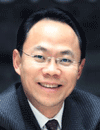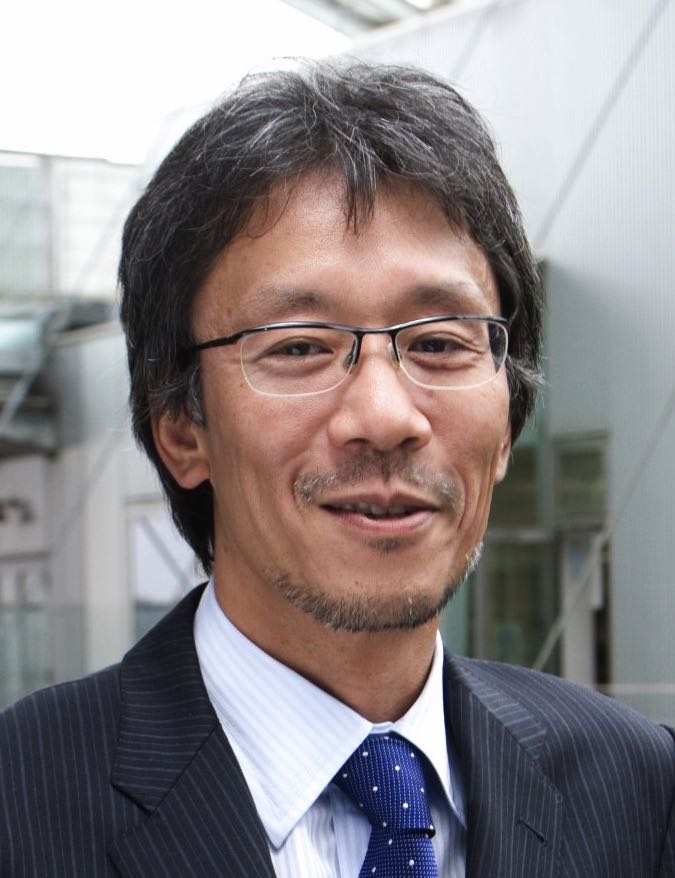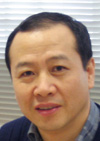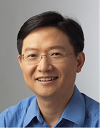Jing Cheng
CEO, CapitalBioJing Cheng, PhD, is a Cheung Kong Professor at Medical Systems Biology Research Center, Department of Biomedical Engineering, Tsinghua University School of Medicine, Director of National Engineering Research Center for Beijing Biochip Technology,Member of the Chinese Academy of Engineering?
Dr. Cheng received his B.Eng. degree in Electrical Engineering from Tongji University (China) and Ph.D. degree in Forensic Sciences from the University of Strathclyde (UK). He gained additional postdoctoral experience at the University of Strathclyde and the University of Aberdeen (UK) and the University of Pennsylvania (USA) where he was appointed as a Research Assistant Professor in the School of Medicine. In 1996 he joined Nanogen Inc in San Diego as a Staff Scientist /Engineer where he was later promoted to Principal Scientist and Engineer, and Principal Investigator. From 1999 to 2001 he assumed the role of Chief Technology Officer at Aviva Biosciences Corp in San Diego, USA. From 2000 to present, he is managing the over-all research as the director of National Engineering Research Center for Beijing Biochip Technology, and serves as CEO and CTO at CapitalBio Corporation in Beijing. He was awarded Nanogen's most prestigious award NanoGrant in 1999, National Young Scientist Award in 2004, Qiushi Outstanding Youth Technology Transfer Award in 2004, Second Prize of the National Awards for Technological Innovation in 2007, Ho Leung Ho Lee Prize for Scientific and Technological Innovation in 2008 and Tanjiazhen Life Science Innovation Award in 2008. Dr. Cheng has published 115 peer-reviewed papers and edited 8 books. In addition, he has obtained 38 European and US patents. He has been an invited speaker to many international conferences. His current interest is in the development of biochip-based microsystems for check-up and diagnostic use and ultra-high throughput systems for drug screening.
|  | | | Jon Cooper
Professor, University of GlasgowJonathan Cooper has pioneered technologies in biosensors (1980s), protein and DNA microarrays (1990s) and Lab-on-a-Chip and Bionanotechnology (2000s). He has published ca. 200 research papers, is the founder of Mode Diagnostics (producing home diagnostics for bowel cancer), and of ClydeBiosciences (developing toxicity tests). In his recent research, he has focused upon using phononics in the field of medical diagnostics. In one example, using phononics, he has created frequency dependent acoustic lenses and mirrors with phononic crystals to enable generic platforms for low cost diagnostics. Jon was elected as a Fellow of the Royal Academy of Engineering in 2004. He was appointed to the Wolfson Chair in Biomedical Engineering in 2009 and was awarded a Royal Society Merit Award in 2010. |  | | | Teruo Fujii
Professor, University Of TokyoHe is professor at the Institute of Industrial Science (IIS), the University of Tokyo since 2007. His research interest is mainly in fundamental technologies of Microfluidic Devices and Systems, and their applications to biological sciences, medical diagnostics, and in situ measurement and analysis in deep-sea and subsurface environments. He served as the general chair of MicroTAS2012. |  | | | Vincent Linder
CTO, OPKO DiagnosticsDr. Linder serves as Chief Technology Officer at OPKO Diagnostics, a company focusing on the commercialization of clinical diagnostics products, including a high-performance Point-of-Care test system (Claros1TM) and a high-specificity laboratory test for prostate cancer (4KscoreTM). He is also a co-founder of Claros Diagnostics Inc. (now part of OPKO) and co-invented the Claros technology, while being a post-doctorate fellow in George Whitesides’ laboratory at Harvard University. Dr. Linder also worked as Group Leader in microfluidics at the University of Neuchatel (Switzerland), and has served as Research Scientist at CSEM (Switzerland), a leading company in micro/nanotechnology and microelectronics. He holds a M.Sc. in Chemistry and a Ph.D. in Science from the University of Neuchatel, where he performed research in the area of microfluidic technology for immunoassays with Prof. Nico de Rooij, one of the pioneers in the field of microfluidics.
|  | | | Ai Qun Liu
Professor, Nanyang Technological UniversityDr Ai-Qun Liu (A. Q. Liu) received his PhD degree from National University of Singapore (NUS) in 1994. Currently, he is a Professor at School of Electrical & Electronic Engineering, Nanyang Technological University (NTU). He serves as an editor and editorial board member of several journals. He is the author or co-author of over 150 publications including peer-reviewed journal papers and two books. Also, he is OSA Fellow, RCS Fellow and SPIE Fellow. |  | | | Hanry Yu
Group Leader, Institute of Bioengineering and Nanotechnology A*STARSorry, There is currently no biography for this presenter. |  | | | Roland Zengerle
Professor, University of FreiburgFull Professor with appointments at
• IMTEK - Department of Microsystems Engineering, University of Freiburg
• HSG-IMIT, Villingen-Schwenningen & Freiburg, Germany
• BIOSS Centre for Biological Signalling Studies, Freiburg, Germany
Prof. Dr. Roland Zengerle is full professor at the Department of Microsystems Engineering at the University of Freiburg and director at the “Institut für Mikro- und Informationstechnik” of the Hahn-Schickard-Gesellschaft (HSG-IMIT). The research of Dr. Zengerle is focused on microfluidics and specialises in lab-on-a-chip systems, non-contact microdosage of picoliter & nanoliter volumes, medical MEMS, bio fuel cells as well as micro- and nanofluidics modelling and simulation. Dr. Zengerle co-authored more than 250 papers. He is a member of the German national academy of sciences, Leopoldina. |  | | |
|

 Add to Calendar ▼2013-11-12 00:00:002013-11-13 00:00:00Europe/LondonLab-on-a-Chip Asia Track ASELECTBIOenquiries@selectbiosciences.com
Add to Calendar ▼2013-11-12 00:00:002013-11-13 00:00:00Europe/LondonLab-on-a-Chip Asia Track ASELECTBIOenquiries@selectbiosciences.com